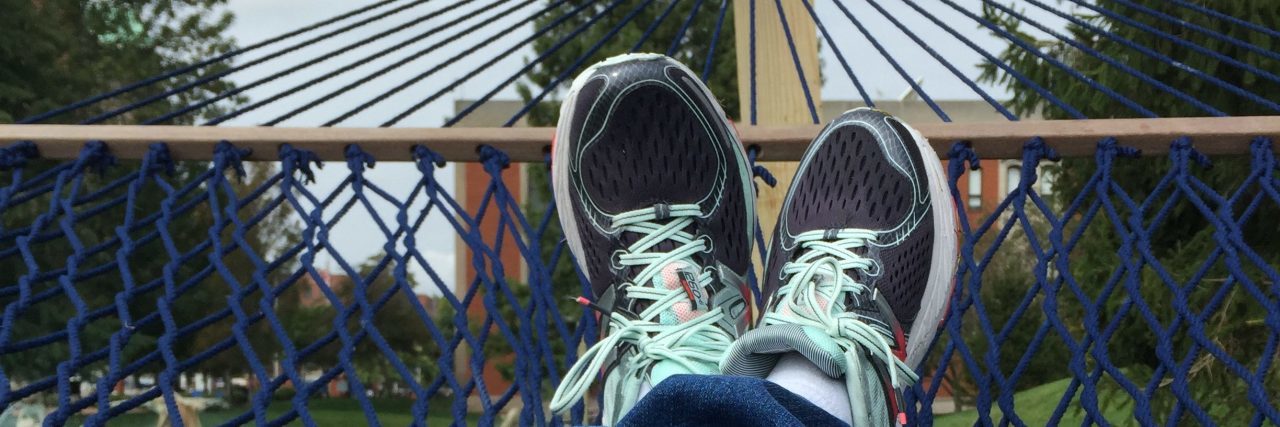When I was in college, I had a roommate who told me that she thought all people with cerebral palsy used wheelchairs. She didn’t realize there was a whole different set of people with cerebral palsy who don’t fit the stereotypical image of a person in a wheelchair or use walking aids such as crutches or a walker to get around.
I am part of that “other” group of people with cerebral palsy. The majority of the times I disclose my disability, I get the response of “I’d never have known if you didn’t tell me,” or even the “you don’t really, do you?” Sometimes they don’t believe me at all. For that reason, I rarely disclose the fact that I have CP.
My CP is really mild. That is both a blessing and a curse. I’m grateful that I have been able to learn to play many musical instruments, and I’m able to walk without mobility aids. My limp is so mild it is often “invisible” to outsiders. But at the same time, people don’t realize or sometimes even believe me when I say I’m struggling. I don’t blame people for not always believing me when I say I have CP. That wouldn’t be the first thing to come to my mind either. The times people do happen to notice my limp, I’ve heard the same question too many times: “How did you hurt yourself?”
Growing up, I was the kid who had very little friends and was picked last in gym class. No one seemed to understand me, but looking back I now realize I didn’t give them the chance. I wanted nothing more than to pass as “normal,” so when asked if I wanted to disclose my CP to my classmates, I said no. I never told my classmates I had CP, so of course I looked like the weird one. I got weird looks when I had stretching casts and surgery in middle school and high school (yay for growing) and when I was using a wheelchair after surgery in eighth grade, the kids called me a faker. I must have been “faking” everything since I could get up and walk a little, but used a wheelchair to navigate the halls at school the rest of the day. To this day, I still feel a lot of shame regarding my cerebral palsy, and it’s really tough to talk about.
My parents raised me with the mindset that they weren’t going to place limitations on me. I really appreciate how they didn’t limit me. However, since I looked and was able to pass so often as “normal” in the physical sense, I feel that led to some unfair expectations when it came to my endurance and ability to function 100 percent in this fast-paced world. This in turn led me to have some unfair expectations for myself. Since I was so “normal,” I expected “normalcy” from myself.
I was always confused (and still am) about my identity as someone with a disability. My whole life, I felt stuck in the grey area in the middle between disabled and able-bodied. I don’t know where I belong. I often don’t feel disabled because I’m able to do so much, however I also feel like I have limitations others don’t have to face.
I pushed myself really hard in school, and I would still fall short of my peers. This was especially noticeable at the end of high school and all throughout college. This led me to falling into a deep depression and subsequently having to drop out of grad school.
I know that many people facing physical challenges, visible and invisible, grow frustrated over their situations. A while back, I came across Albert Einstein’s quote “Everybody is a genius. But if you judge a fish by its ability to climb a tree, it will live its whole life believing that it is stupid.” I think this is an area of growth for me. I need to recognize and accept that it is OK to be different. I need to work on believing it is OK for me to live life at a different pace and have different, more reasonable expectations for myself.
Photo provided by contributor.

